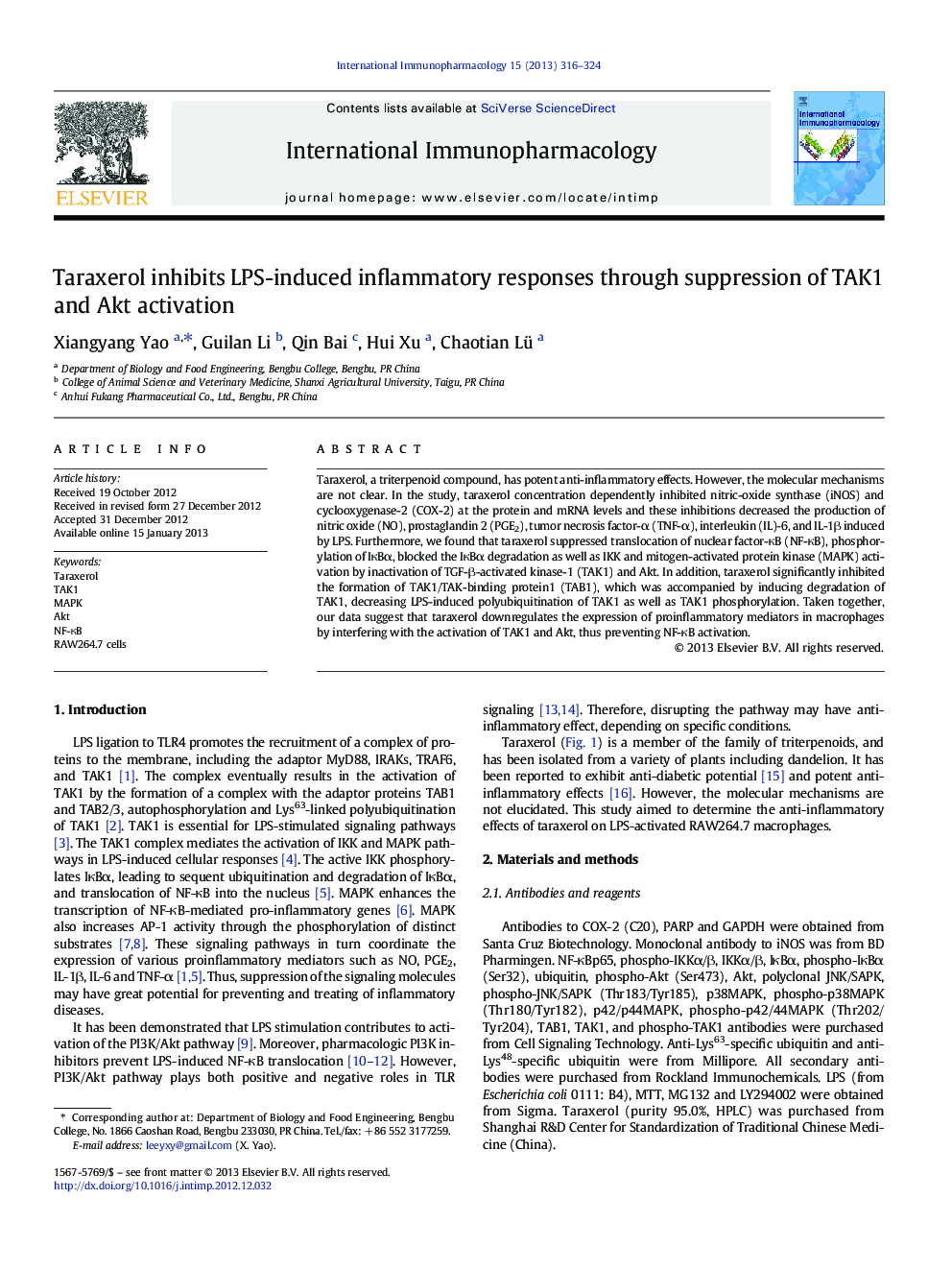| Article ID | Journal | Published Year | Pages | File Type |
|---|---|---|---|---|
| 5833045 | International Immunopharmacology | 2013 | 9 Pages |
Taraxerol, a triterpenoid compound, has potent anti-inflammatory effects. However, the molecular mechanisms are not clear. In the study, taraxerol concentration dependently inhibited nitric-oxide synthase (iNOS) and cyclooxygenase-2 (COX-2) at the protein and mRNA levels and these inhibitions decreased the production of nitric oxide (NO), prostaglandin 2 (PGE2), tumor necrosis factor-α (TNF-α), interleukin (IL)-6, and IL-1β induced by LPS. Furthermore, we found that taraxerol suppressed translocation of nuclear factor-κB (NF-κB), phosphorylation of IκBα, blocked the IκBα degradation as well as IKK and mitogen-activated protein kinase (MAPK) activation by inactivation of TGF-β-activated kinase-1 (TAK1) and Akt. In addition, taraxerol significantly inhibited the formation of TAK1/TAK-binding protein1 (TAB1), which was accompanied by inducing degradation of TAK1, decreasing LPS-induced polyubiquitination of TAK1 as well as TAK1 phosphorylation. Taken together, our data suggest that taraxerol downregulates the expression of proinflammatory mediators in macrophages by interfering with the activation of TAK1 and Akt, thus preventing NF-κB activation.
⺠Taraxerol decreases induction of NO, PGE2, TNF-α, IL-6, and IL-1β. ⺠Taraxerol downregulates gene expressions of iNOS and COX-2. ⺠Taraxerol inhibits the activation of TAK1, Akt, IKK and MAPK. ⺠Taraxerol suppresses activation of TAK1 at multiple levels.
